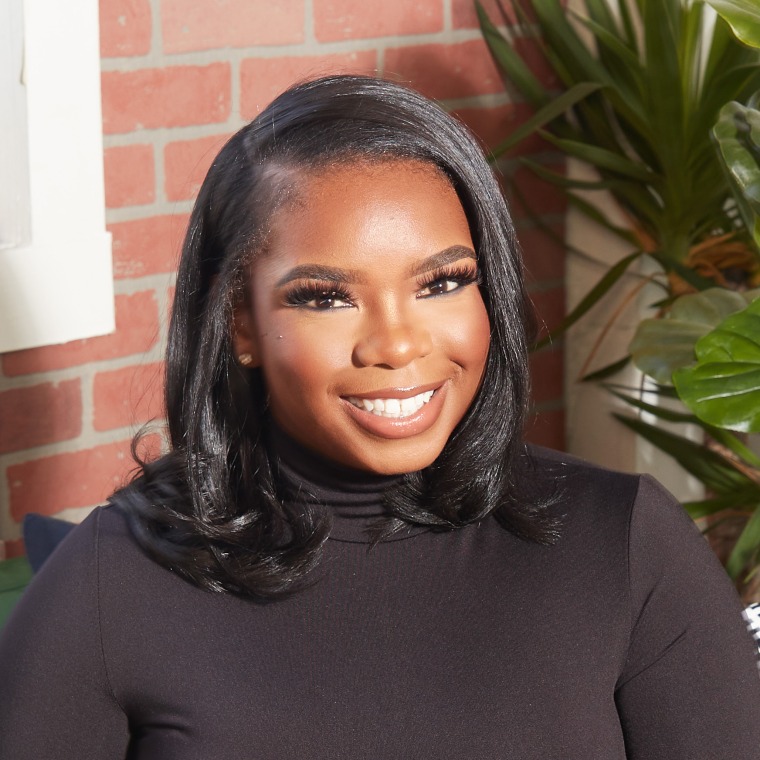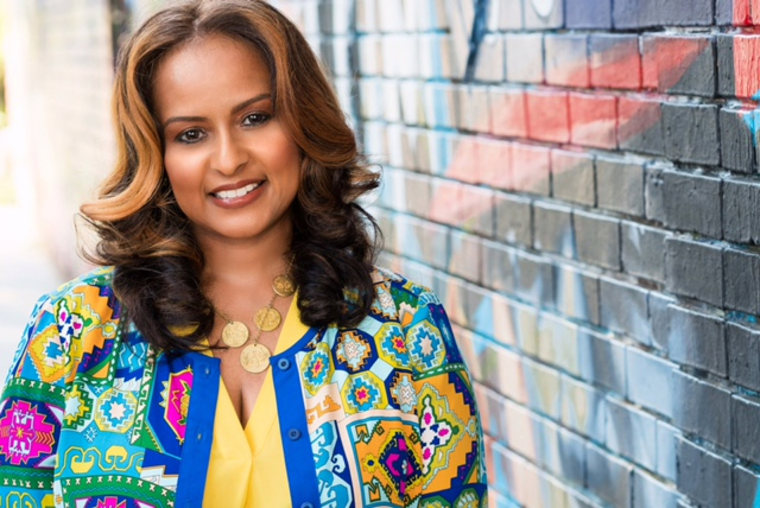Sony Music Publishing announced that it had teamed with the nonprofit Silence the Shame to expand mental health resources to its songwriters and employees and the greater music community. For the nonprofit's founder, Shanti Das, a former music executive, the partnership affirms that she is fulfilling her purpose.
Das lost her father to suicide when she was 7 months old. A best friend died by suicide in 2014 — and Das later considered suicide. She began speaking publicly about her own mental health struggles and founded the Atlanta-based organization in 2015 to normalize conversations around mental health, specifically within communities of color.
With the new partnership with Sony, Silence the Shame has set a goal of providing mental health education training for 10,000 musicians and executives by 2023.
Black adults are more likely than white adults to report persistent symptoms of emotional distress, such as sadness, hopelessness and feeling like everything is an effort, according to the Department of Health and Human Services' Office of Minority Health. Suicide was the second-leading cause of death for Black Americans ages 15 to 24 in 2017, the department found. Among Black populations, suicide rates peak during adolescence and young adulthood and then decline. That is a different pattern from what is seen in the overall U.S. population, in which suicide rates generally peak for people in their 40s, according to the Suicide Prevention Resource Center.
"The past year has put a spotlight on how we treat mental health in our industry, and overall society — we must break the stigma and be proactive in our support," Sony Music Publishing Chairman and CEO Jon Platt said in a news release announcing the partnership with Silence the Shame.
Das said in the announcement, "Our goal is to educate this community on mental wellness and to provide effective coping mechanisms, strategies and resources for healthy and productive living."
The death of George Floyd, the movement that followed and the social isolation caused by the Covid-19 pandemic have stressed people and pushed many to pay better attention to their mental health. All of that combines to make Das believe the time is right for the work she is doing.
"Oftentimes creatives are afraid to be open and share about their mental health challenges," Das said. "There is a tremendous amount of pressure on them to be great and to always be on. But more and more artists and creatives are beginning to share their vulnerabilities and feelings. They seem to be leaning into mental wellness and good self-care."
Das knows what it's like to struggle with maintaining one's mental health while also working in a creative dream job. In recent years, her mother was diagnosed with Alzheimer's disease and an uncle who was her father figure died. Das was steeped in grief, which made the stress of her job overwhelming.
At the end of 2009 she left New York and her position as executive vice president at Universal Motown Records and moved back home to Atlanta. She helped out her family, volunteered for various community projects and sometimes put together music showcases at Atlanta parks. Then, in 2014, a best friend died by suicide, and Das began what she called a "downward spiral."
"I found myself blaming myself, looking for signs I missed," she said. "In 2015, I heavily contemplated suicide. When that happened, I realized I needed help. I didn't want to die — I wanted the pain to end."
Like many people overwhelmed by mental challenges, she said she didn't know how to make the pain end. A friend recognized that she was struggling and told her to get immediate help. She texted her pastor, the Rev. Raphael Warnock, the pastor of Ebenezer Baptist Church, who is now a senator from Georgia.
"He said, 'I'll pray with you, but you have to go to the doctor,'" Das said. She sought treatment from a psychiatrist.
"I started sharing my personal story on social media and realized so many people experienced the same thing and didn't know how to talk about it or have an outlet where they could," Das said.
She organized community panels on mental health issues and posted them on social media. With a grant from Jack & Jill of America Inc., a membership organization of mothers and children dedicated to developing African American leaders, she organized and participated in a seven-city mental health campaign for teens that featured panel discussions and breakout sessions. She partnered with HIV/AIDS health care organizations for community sessions about mental health and AIDS in the Black community in cities nationwide.
"It showed me the collaboration was timely and needed and there was powerful work to be done together — transformative work," Das said.
In 2019, Das suffered a devastating loss when one of her two siblings, her beloved older sister, passed away. Although her grieving continues, she said, "I understand the value of therapy, which taught me coping skills that have helped me survive."
In addition to panel discussions and community events, before the Covid-19 pandemic, Silence the Shame began offering an eight-hour course called Mental Health First Aid, in which people learn about different types of mental illnesses, resources and how to cope with mental health challenges.
Unable to hold public events now, Das started Yeah Wellness LLC, described as a "community promoting the health and wellness of one's mind, body, spirit and business."
Through Yeah Wellness, she has offered online a series of interviews with celebrity friends and contacts, including Ludacris, Da Brat, Tisha Campbell, Ralph Tresvant and many others, talking about subjects such as mental wellness and coping during the pandemic. Silence the Shame also has "Self-Care Saturdays," featuring free virtual wellness activities, such as meditation, aerobics and yoga.
And a grant from the NFL Players Association allowed Das to continue producing the "Silence the Shame" podcast she began in 2017.
Today, Das works full time as founder at Silence the Shame and has two other full-time staff members, a board of directors and a committee of 12 volunteer advisers.
"Covid-19 has shown us that African Americans are disproportionately affected when it comes to accessing health care, especially in rural and lower-income areas. So many people are still uninsured," she said. "We want to provide resources and an outlet for the underserved community to look at mental health more seriously."
Even before the Sony partnership, Das occasionally got affirmation that she was in the right business from people she had unknowingly helped. One of those people, Bree Davis, was going to jump off the Jackson Street Bridge in Atlanta when she was stopped by a stranger she describes as "this little angel with tattoos from head to toe, who spoke with a British accent."
That "little angel" sat with her through the night and then walked her to a facility where she could get help.

While they were on the bridge, the tattooed angel showed Davis videos she said had helped her when she watched them back home in the U.K. Some of the videos were interviews and testimonies posted by Das, featuring people who had worked through mental health challenges.
Davis, who had been in an abusive relationship and was experiencing racism on her job, met Das at an event four months later. Today, Davis, 28, is a small-business owner and a nonprofit fundraising and resource development executive in Atlanta. She cries at the memory of how she felt at her lowest point and how wonderful it was to meet Das, who was the first person besides her therapist whom Davis ever told about the night on the bridge.
"She doesn't pose as a therapist, a healer or doctor. She's a confidante and supporter," Davis said. "She lets you know you are not alone."
Now Davis, who started making candles and anonymously leaving them at homeless shelters and shelters for battered women, has her own line of candles, Pure Nirvana & Co. She is also a Silence the Shame volunteer.
Das said: "Everyone needs somebody who has compassion, an open ear and is willing to support us. I feel that God has bestowed upon me that ear, the gift of being able to listen."
If you or someone you know is in crisis, call the National Suicide Prevention Lifeline at 800-273-8255, text HOME to 741741 or visit SpeakingOfSuicide.com/resources for additional resources.
